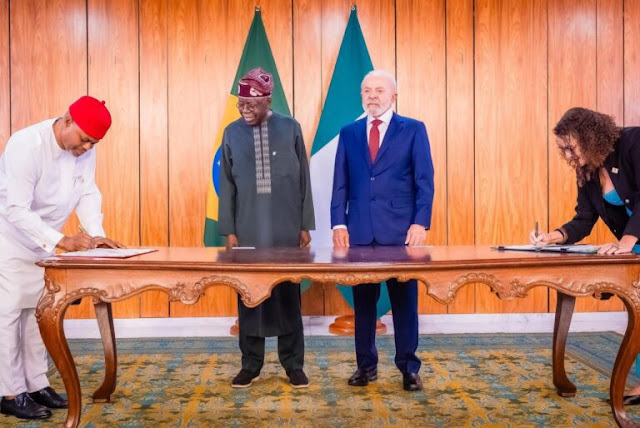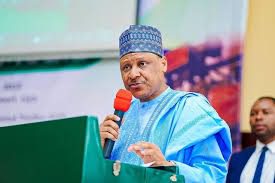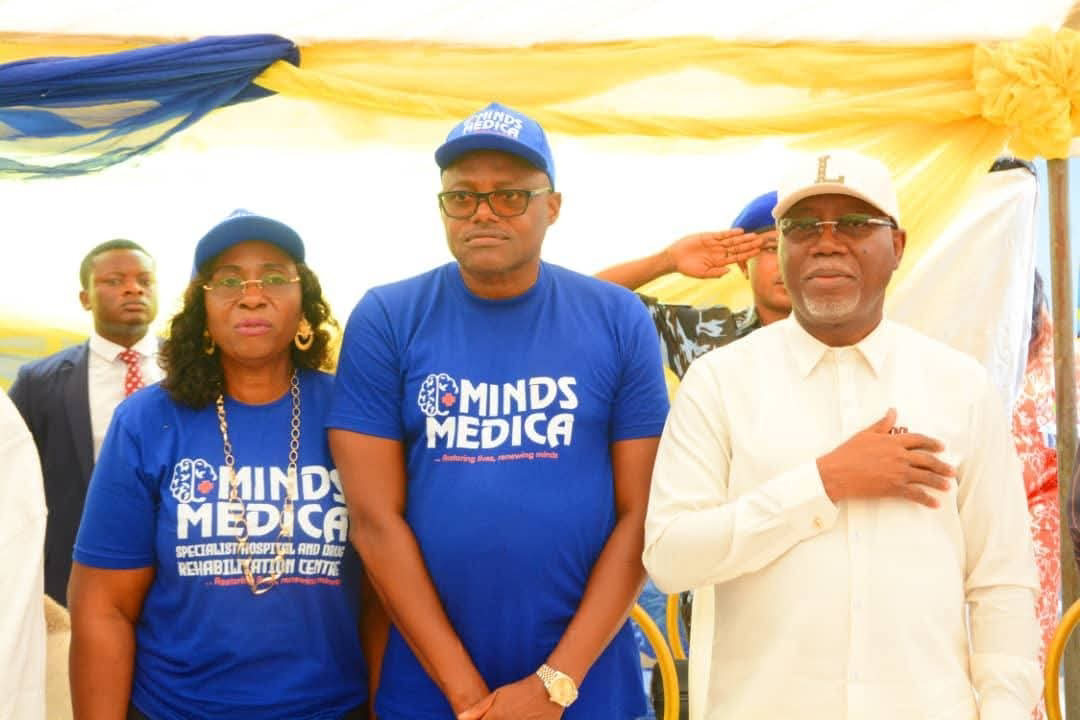Brasília, Brazil – In a landmark move to deepen economic and diplomatic relations, Nigeria and Brazil have signed five Memoranda of Understanding (MoUs) covering trade, diplomacy, science, aviation, and finance during a state visit by Nigerian President Bola Ahmed Tinubu to Brazil on Monday, August 25, 2025. The agreements, signed following a high-level meeting with Brazilian President Luiz Inácio Lula da Silva, mark a significant step toward revitalizing the partnership between the two largest economies in Africa and South America. At a joint press conference in Brasília, President Tinubu also announced the imminent return of Brazil’s state-owned oil giant, Petrobras, to Nigeria, signaling a renewed focus on energy cooperation.
The visit, described by Tinubu as “very emotional,” underscored the shared heritage and ambitions of Nigeria and Brazil, two nations with significant Black populations and a history of collaboration. The agreements and discussions reflect a mutual commitment to leveraging their economic strengths to foster development, innovation, and prosperity. With bilateral trade reaching $2.1 billion in 2024, the new MoUs and the potential return of Petrobras are poised to elevate Nigeria-Brazil relations to new heights, with implications for trade, energy, technology, and regional integration.
A New Chapter in Nigeria-Brazil Relations
President Tinubu’s state visit to Brazil was a pivotal moment in the evolving relationship between Nigeria and Brazil. Speaking at the Palácio do Planalto in Brasília, Tinubu emphasized the urgency of moving beyond symbolic ties to concrete economic cooperation. “We have allowed some problems and activities in the past to deter us from making progress and fulfilling our promises. But today we say that is the end of that,” he declared, signaling a break from historical setbacks and a commitment to actionable partnerships.
The visit, Tinubu’s third to Brazil, followed previous engagements at the G20 summit and a climate change-focused BRICS meeting. The state visit, however, was the most significant, culminating in a two-hour bilateral meeting and the signing of five MoUs that cover critical sectors: trade, diplomacy, science, aviation, and finance. These agreements reflect a shared vision to harness the complementary strengths of both nations, from Nigeria’s vast natural resources to Brazil’s technological and industrial prowess.
Tinubu praised President Lula’s commitment to revitalizing the partnership, noting that Nigeria’s economic space remains a “virgin land” full of opportunities for Brazilian companies. He highlighted the potential for collaboration in technology transfer, food security, manufacturing, and renewable energy, positioning Nigeria as a gateway to Africa’s growing markets. “Africa is the new frontier,” Tinubu said. “There is no other way to do it than to embrace it with technology, fast development, research, food sovereignty, and manufacturing.”
Petrobras’ Imminent Return to Nigeria
A key highlight of the visit was Tinubu’s announcement of Petrobras’ potential return to Nigeria, five years after the Brazilian state-owned oil company halted its joint venture operations in the country. Petrobras, which began operations in Nigeria in 1998 with a focus on deep offshore exploration in the Niger Delta, sold its stakes over a decade ago to prioritize domestic projects, particularly in Brazil’s pre-salt oil fields. Tinubu’s call for Petrobras’ return underscores Nigeria’s ambition to revitalize its oil and gas sector, a critical driver of the nation’s economy.
“I don’t see why Petrobras doesn’t join as a partner in Nigeria as soon as possible,” Tinubu said, emphasizing Nigeria’s status as Africa’s largest crude oil producer and holder of the continent’s largest gas reserves, estimated at over 200 trillion cubic feet. He expressed gratitude for President Lula’s assurance that the process would be fast-tracked, signaling a mutual commitment to reigniting energy cooperation. “We have the largest gas repository,” Tinubu added, highlighting the untapped potential of Nigeria’s energy sector.
Petrobras’ return could have a transformative impact on Nigeria’s oil and gas industry, which has faced challenges such as pipeline vandalism, oil theft, and underinvestment. The company’s expertise in deep-water exploration aligns with Nigeria’s need to develop its offshore fields, including the Egina, Akpo, and Bonga fields. By leveraging Petrobras’ advanced technologies and operational experience, Nigeria aims to boost its oil production, which has fluctuated between 1.2 and 1.5 million barrels per day (bpd) in recent years, well below its capacity of over 2 million bpd.
The potential return of Petrobras also holds broader economic implications. Increased oil and gas production could generate significant revenue for Nigeria, helping to address foreign exchange shortages and stabilize the naira. Additionally, the influx of foreign direct investment (FDI) from Petrobras and other Brazilian companies could create jobs, particularly in the Niger Delta, where unemployment and environmental degradation have fueled unrest. Nigerian officials, including the Minister of State for Petroleum Resources, Heineken Lokpobiri, have expressed optimism about the partnership, noting that the government is streamlining regulations and offering incentives to attract investors.
Five MoUs to Strengthen Bilateral Ties
The signing of five MoUs during the state visit represents a comprehensive effort to deepen cooperation across multiple sectors. While the specific details of each MoU were not disclosed at the press conference, the agreements are designed to foster collaboration in trade, diplomacy, science, aviation, and finance, laying the foundation for a more robust partnership.
Trade: Bilateral trade between Nigeria and Brazil reached $2.1 billion in 2024, with Brazil exporting $1 billion worth of goods, primarily sugar and jams, and importing $1.1 billion, largely fertilizers, from Nigeria. The trade MoU aims to diversify this relationship by expanding the range of goods and services exchanged. Nigeria seeks to increase exports of value-added products, such as processed agricultural goods and minerals, while Brazil aims to expand its market share in Nigeria’s growing consumer market. The agreement also includes measures to reduce trade barriers and facilitate cross-border investment.
Diplomacy: The diplomatic MoU focuses on strengthening political and cultural ties between Nigeria and Brazil. Both countries, as leaders of the Global South, share a commitment to promoting multilateralism and countering hegemonic impositions. The agreement includes provisions for regular high-level dialogues, cultural exchanges, and collaboration in international forums such as the United Nations and the African Union-South American Summit (ASA). This partnership aims to amplify the voices of developing nations on issues such as climate change, global trade, and peacebuilding.
Science: The science MoU emphasizes technology transfer and research collaboration, with a focus on areas such as renewable energy, agriculture, and healthcare. Tinubu highlighted Brazil’s expertise in generic drug manufacturing as a potential area for partnership, noting that Nigeria could benefit from producing affordable pharmaceuticals locally. “I don’t know why the manufacturing of generic drugs, which Brazil has done deeply and far, cannot be in Nigeria,” he said. The agreement also includes provisions for joint research initiatives and capacity-building programs to strengthen Nigeria’s scientific ecosystem.
Aviation: The aviation MoU is one of the most tangible outcomes of the state visit, with the establishment of a direct flight route between Lagos, Nigeria’s commercial hub, and São Paulo, Brazil’s economic powerhouse. The route, to be operated by Nigeria’s largest airline, Air Peace, is expected to facilitate business travel, tourism, and cultural exchanges. Additionally, the agreement includes a partnership with Brazilian aircraft manufacturer Embraer to establish a service center in Nigeria. The center will provide maintenance, repair, and overhaul services for Embraer aircraft, serving as a hub for the West African subregion. This initiative is expected to enhance Nigeria’s aviation industry, create jobs, and reduce the cost of aircraft maintenance for local airlines.
Finance: The finance MoU aims to strengthen financial cooperation, including banking, investment, and monetary policy coordination. Tinubu highlighted Nigeria’s recent economic reforms, which have stabilized the currency market and reduced opportunities for speculation. “We have more money for the economy, and there will be no more corruption,” he said, noting the presence of the Central Bank of Nigeria’s governor at the press conference. The agreement includes measures to facilitate cross-border financial transactions, promote investment in infrastructure, and enhance financial inclusion through digital banking solutions.
Economic Reforms and Investment Opportunities
President Tinubu used the platform to showcase Nigeria’s economic reforms, which he described as “impactful” despite initial challenges. Since taking office, Tinubu’s administration has implemented bold measures, including the removal of fuel subsidies and the liberalization of the foreign exchange market. These reforms, while initially painful for many Nigerians due to rising costs, have begun to yield results, with increased revenue for the government and a more transparent currency market.
“The reforms I’ve embarked upon since I took over in Nigeria have been very impactful,” Tinubu said. “It was initially painful, but today the result is blossoming. It’s getting clearer to the people.” He assured investors that Nigeria’s economic environment is now more conducive to business, with reduced opportunities for corruption and speculation. “You don’t have to know [the Central Bank governor] before getting the foreign exchange you need,” he added, emphasizing the government’s commitment to transparency and accessibility.
Tinubu’s remarks were directed not only at Brazilian investors but also at the global business community. Nigeria, as Africa’s most populous nation and a dynamic economy, offers vast opportunities in sectors such as energy, agriculture, manufacturing, and technology. The president highlighted the potential for Brazilian companies to invest in Nigeria’s untapped resources, including its gas reserves, arable land, and growing consumer market. “Nigeria’s economic space remains a virgin land, full of opportunities for Brazilian companies,” he said.
Brazil’s Perspective: A Commitment to South-South Cooperation
President Lula, a veteran of South-South diplomacy, welcomed the restart of the Brazil-Nigeria relationship, emphasizing the potential for synergy between the two nations. “There are many possibilities for synergy between the world’s two largest countries with Black populations,” he said, citing agriculture, livestock, oil and gas, fertilizers, aircraft, and machinery as key areas for cooperation. Lula’s remarks reflect Brazil’s broader strategy to strengthen ties with African nations, particularly Nigeria, which serves as a gateway to West Africa.
Lula also highlighted the importance of free trade and productive integration at a time when protectionism and unilateralism are on the rise. “Nigeria and Brazil reaffirm their bet on free trade and productive integration,” he said. “We continue to be dedicated to building a world of peace, free from hegemonic impositions.” The Brazilian president’s commitment to multilateralism aligns with Nigeria’s aspirations to play a leading role in African and global affairs.
The launch of the direct flight between Lagos and São Paulo was a key point of pride for Lula, who described it as “another essential step to strengthen the ties between our societies.” The flight, operated by Air Peace, is expected to boost tourism and business travel, fostering greater people-to-people connections. Similarly, the partnership with Embraer underscores Brazil’s commitment to supporting Nigeria’s aviation sector, which is critical to the country’s economic growth.
Trade Dynamics and Economic Context
Bilateral trade between Nigeria and Brazil has grown steadily in recent years, reaching $2.1 billion in 2024. Brazil’s exports to Nigeria, totaling nearly $1 billion, are dominated by agricultural products such as sugar and jams, reflecting the country’s status as a global agricultural powerhouse. Nigeria, in turn, exported $1.1 billion worth of goods to Brazil, primarily fertilizers, which are critical to Brazil’s agricultural sector. This trade relationship underscores the complementary nature of the two economies, with Nigeria’s raw materials and Brazil’s processed goods forming the backbone of their commerce.
The MoUs signed during the state visit aim to build on this foundation by diversifying trade and promoting value-added exports. Nigeria, for instance, is keen to move beyond exporting raw materials and develop its manufacturing and processing capabilities. Brazil’s expertise in agribusiness, pharmaceuticals, and renewable energy offers opportunities for technology transfer and joint ventures, which could help Nigeria achieve its industrialization goals.
Nigeria’s economic context provides both opportunities and challenges for deeper cooperation. The country’s population of over 200 million and its growing middle class make it an attractive market for Brazilian companies. However, challenges such as infrastructure deficits, regulatory hurdles, and security concerns in the Niger Delta must be addressed to fully realize the potential of the partnership. Tinubu’s reforms, including the Petroleum Industry Act (PIA) of 2021, aim to create a more investor-friendly environment, but sustained implementation will be critical.
Implications for Nigeria’s Energy Sector
The potential return of Petrobras is a cornerstone of the renewed Nigeria-Brazil partnership, with significant implications for Nigeria’s energy sector. The oil and gas industry accounts for approximately 90% of Nigeria’s export earnings and a substantial portion of government revenue. However, production has been hampered by operational and security challenges, with output falling below capacity in recent years. Petrobras’ expertise in deep-water exploration could help Nigeria unlock new production potential, particularly in offshore fields.
Beyond oil, Nigeria’s vast gas reserves offer opportunities for collaboration in liquefied natural gas (LNG) and renewable energy. Brazil, with its advanced biofuels industry and growing renewable energy sector, could share expertise in these areas, helping Nigeria diversify its energy mix. Such collaboration aligns with global trends toward cleaner energy and could position Nigeria as a leader in Africa’s energy transition.
Challenges and Opportunities
While the agreements and Petrobras’ potential return are promising, they are not without challenges. Nigeria’s oil and gas sector faces issues such as pipeline vandalism, oil theft, and regulatory uncertainties, which have deterred investors in the past. The government’s efforts to address these challenges through the PIA and improved security measures will be critical to ensuring Petrobras’ successful re-entry.
Similarly, the implementation of the MoUs will require sustained commitment from both sides. Nigeria must continue its economic reforms to create a stable and transparent business environment, while Brazil must navigate its own domestic priorities to sustain its international engagements. The success of the direct flight route and the Embraer service center will depend on effective coordination and investment in infrastructure.
Despite these challenges, the opportunities are immense. Nigeria’s strategic location, abundant resources, and large market make it an ideal partner for Brazil, while Brazil’s technological and industrial capabilities offer Nigeria a pathway to modernization. The partnership could also have broader implications for South-South cooperation, serving as a model for other African and Latin American nations.
Reactions and Next Steps
The announcements made during the state visit have been met with optimism in both Nigeria and Brazil. Nigerian business leaders and analysts see the MoUs and Petrobras’ potential return as a boost for the economy, particularly in the energy and aviation sectors. “This is a game-changer for Nigeria,” said Adeola Adebayo, an energy consultant in Lagos. “Petrobras’ return could unlock billions in investment and create thousands of jobs.”
In Brazil, the business community has welcomed the opportunity to expand into Nigeria’s market. The Brazilian Confederation of Industry (CNI) issued a statement praising the agreements and expressing confidence in the potential for growth. “Nigeria is a key market for Brazilian companies, and these MoUs open new avenues for collaboration,” the statement read.
The next steps will involve detailed negotiations to operationalize the MoUs and facilitate Petrobras’ return. Nigerian and Brazilian officials are expected to form joint working groups to oversee the implementation of the agreements, with a focus on expediting projects in energy, aviation, and trade. The direct flight route and Embraer service center are expected to launch within the next year, pending regulatory approvals and logistical arrangements.
Conclusion
The signing of five MoUs and the announcement of Petrobras’ imminent return mark a new chapter in Nigeria-Brazil relations. President Tinubu’s state visit to Brazil has set the stage for deeper cooperation in trade, diplomacy, science, aviation, and finance, with the potential to transform both economies. By leveraging Nigeria’s resources and Brazil’s expertise, the partnership aims to deliver tangible benefits for their citizens while strengthening South-South collaboration.
As Nigeria continues its economic reforms and Brazil expands its global footprint, the renewed partnership offers a blueprint for mutual prosperity. With sustained commitment and effective implementation, Nigeria and Brazil have the opportunity to redefine their relationship and lead the way in fostering a more equitable and interconnected global economy.








